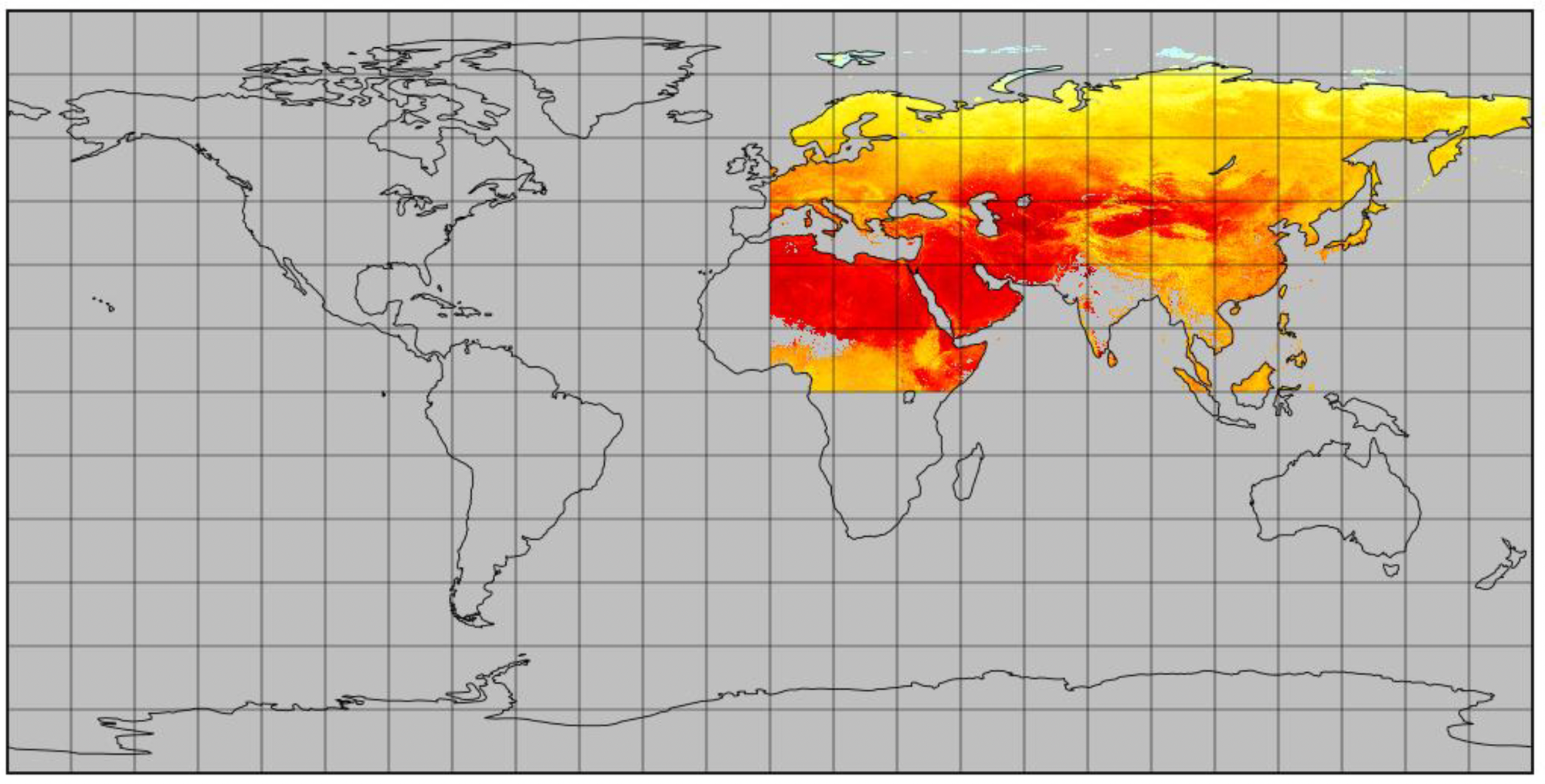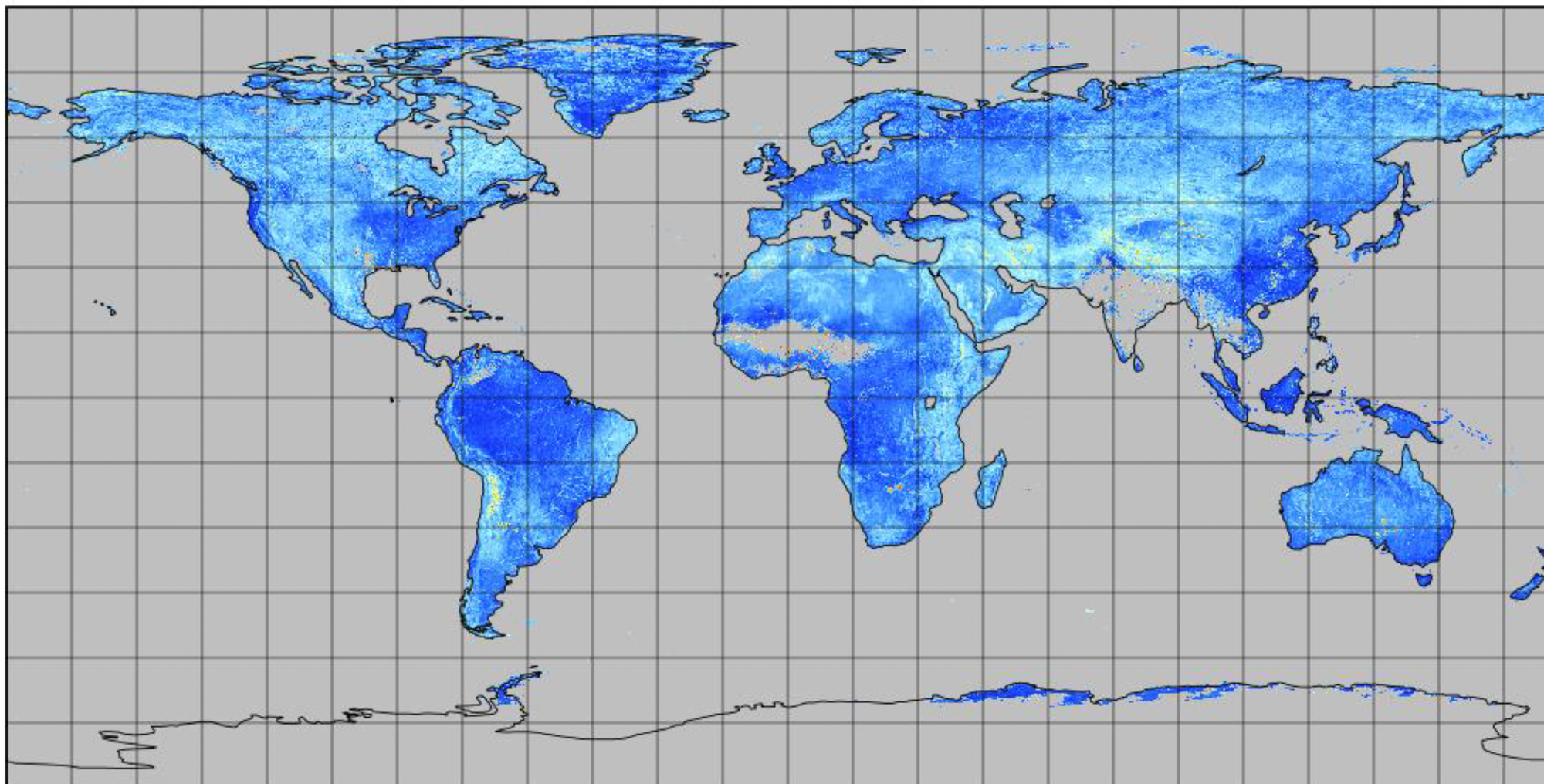6 juin 2023
Regridding tool enhances usability of LST data
New tool helps users downscales global LST_cci products to a coarser resolution grid and deals with uncertainties
The CCI Land Surface Temperature project team have released a regridding and subsetting tool to increase the usability of the CCI LST data products.
The new tool downscales global LST data products produced via the ESA Climate Change Initiative to a new coarser resolution grid to support users. Importantly, the tool propagates uncertainties in a trustable way.
LST products developed through the Climate Change Initiative are available at 0.01° and 0.05° spatial resolution. The higher resolution data are generally used for regional and local applications such as urban planning, agriculture or natural hazard management, while coarser data preferred by those with a focus on global applications – such as climate modellers.
Spatial regridding of climate data is common practice and facilitates comparison and combining data from various data sources. Often coarser resolution is preferred to match that used by climate models or other analytical frameworks. Regridding also lowers data volume, and so saves both computational effort and saves time.
Data interpolation however can often propagate uncertainty. The new LST tool however, fully accounts for uncertainty as part of the regridding process.


“The tool does enables Users of the LST_cci data to work at their preferred resolution in the knowledge that uncertainties have been fully accounted for, and so enables them to focus on their research task,” says Dr Darren Ghent, of the University of Leicester, and the project’s science lead.
In addition to regridding, subsets of data can be defined by Users who do not need the global view – again allowing for computational efficiency focus.
The LST tool’s executable script file and all necessary libraries are available free and open to download and use. An accompanying User manual is available.
For more information visit the Climate Change Initiative’s Land surface temperature project is available and view the CCI open data portal to access a suite of research-ready data products that address Essential Climate Variables.
ESA’s Climate Change Initiative undertakes the R&D to develop global, high-quality, and long-term data records that address multiple Essential Climate Variables to support the UNFCCC and ESA Member States to strengthen understanding of the climate system and address climate change.

